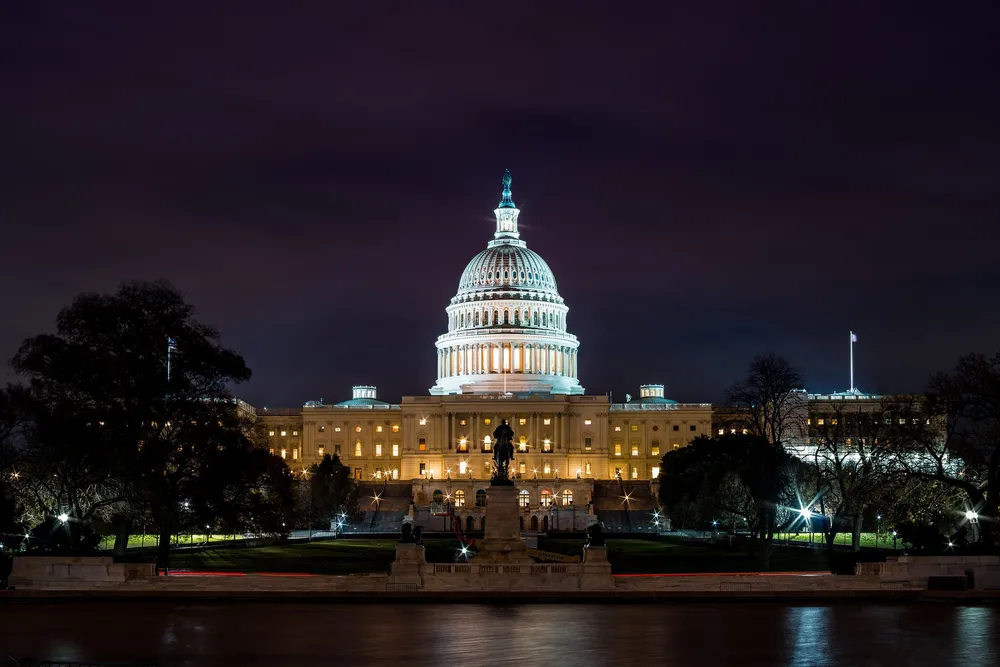Republicans' draft tax bill raises big challenges for renewables: Woodmac
Provisions for quicker phaseout of tax credits and tougher eligibility criteria will stress wind, solar, and storage projects

The draft tax proposal plan released by Republicans in the House of Representatives poses many hurdles for the US clean energy industry and would deter development of projects, according to Wood Mackenzie.
The proposed changes would have “far-reaching implications” across the sector, said Sylvia Leyva Martinez, a principal analyst at the consultancy, adding the “overall outlook for the industry appears challenging.”
The Ways and Means Committee, where tax bills originate, approved the measure with $3.8trn in tax proposals on Wednesday by a party-line 26-19 vote. It would, among other things, extend tax cuts for business and individuals for most households set to expire at the end of 2025.
It will be combined with proposed US government spending cuts from other House committees into a massive “budget reconciliation” bill that majority Republicans hope to win passage by the full chamber this month.
It would then head to the Senate, also under Republican control, which is likely to make changes. President Donald Trump would like the bill on his desk for signature into law by 4 July, commemorating US national independence.
Budget reconciliation is an arcane process that allows the majority party to skirt opposition and approve legislation with a simple majority vote. It can only be used once each calendar year.
Tax credit phase down
The House bill would phase down the technology-neutral federal investment tax credit (ITC) and production tax credit (PTC) for wind, solar, and storage projects that took effect on 1 January this year.
They would remain at full value for projects in service by 2028, then decrease to 80% in 2029, 60% in 2030, 40% in 2031 and 0% in 2032.
While set to expire in 2032, this would only happen if the US power sector were able to lower greenhouse gas emissions to 25% of 2022 levels. Instead, this is not expected to occur until the late 2030s or in the following decade, according to private forecasts.
Bonus tax credits would continue. However, the bonuses would suffer the same haircut in amount as the underlying PTCs or ITCs for projects placed in service during the phase-out period, according to law firm Norton Rose Fulbright.
Woodmac noted that wind, an already constrained market, would be hit by the proposed 2027 termination of the clean energy manufacturing tax credit for turbine components. For other technologies, it would continue through 2031.
“The tax credit phaseout would heavily impact the wind supply chain and project pipeline,” said Diego Espinosa, a senior research analyst.
The proposed change in criteria to access credits from “start of construction” to “placed in service” is expected to tighten project pipelines, “thereby increasing financial risk and uncertainty,” he added.
Woodmac estimates the current onshore wind project pipeline at nearly 11GW between 2025 and 2027. These projects are likely to face challenges in meeting the eligibility criteria for the ITC and PTC.
“The proposed bill introduces additional stress to our wind outlook,” said Espinosa.
Another negative impact would be tougher and more complicated new restrictions on foreign entities of concern (FEOC) after 2028 to meet before projects could claim ITCs or PTCs on clean power and battery storage, and manufacturing tax credits.
A power or battery project that begins construction more than one year after the budget reconciliation bill is enacted could not claim any credits if any “material assistance” is received during construction from a “prohibited foreign entity,” according to the bill.
Solar's China problem
Turning to solar, Woodmac believes manufacturing in the US could also be affected negatively even though the tax credit is left alone, citing FEOC provisions that could “effectively close the US market to Chinese companies.”
The sector would also likely suffer from Republicans wanting to eliminate the ability of project sponsors to sell technology-neutral clean energy tax credits to third-party buyers for cash. This would phase out two years after Trump signs the budget reconciliation bill into law.
The end of tax credit transfers would dramatically hinder US manufacturers that rely heavily on this mechanism for financing, according to Woodmac
Lastly for energy storage, the proposed tax credit changes plus China tariff uncertainty create significant headwinds for the sector.
Despite growing domestic cell manufacturing, the bill complicates the ability of developers that face “hard in-service deadlines in an industry prone to delays, higher costs, and increased risk for lenders.”
(Copyright)